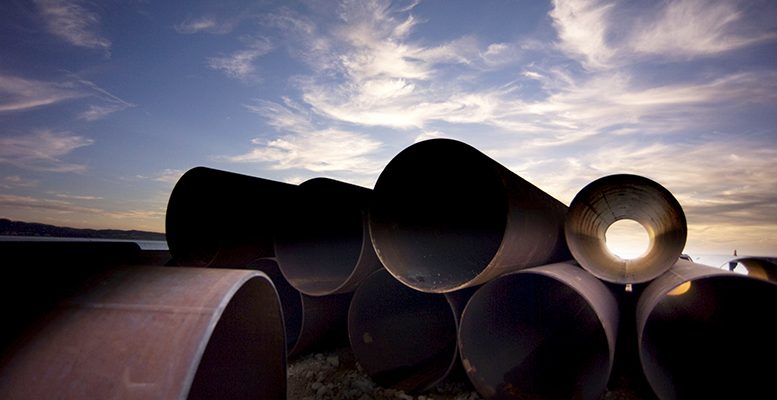Spain has been trying to push ahead with two projects which are vitally important for its energy sector: the sale of gas and electricity (basically renewables) to the EU. With practically no positive results to date. In 2012, an agreement was reached with France and Brussels to increase the electricity and gas interconnections with Europe via the Pyrenees. But in spite of that, and the fact the money is already ready there, the investments required are taking much more time to materialise than they should. And these delays are beginning to provoke indignation in our country.
Recently, a top executive from Red Electrica recalled that this commitment, from 2012, established that in 2020 there should be an interconnection rate between Spain and Europe equivalent to 10% of the peninsula’s demand, around 10.000 Mw. Four years later, this is something which is very far from being achieved. At the moment, the capacity is only 3.000 Mw, not enough for a real single energy market to function.
So who is to blame? France, without a doubt. This country has already criticised those in charge of the energy and industry sectors and has no interest at all in facilitating the transmission of renewable-based electricity through its country: the reason is clear. Its big business is selling nuclear energy, very cheaply, and without any additional competition.
But Spain has its own interests, which are just as legitimate as those of its powerful neighbour: basically that we have one of the the biggest renewables infrastructure in Europe, especially in wind energy. We have the capacity to produce much more electric energy from this origen than we consume, particularly at night. This electricity is very cheap and could be sold to Europe if there was sufficient electricity interconnection capacity in the Pyrenees.
At the moment there are various projects under way to make these electricity exporting possibilities (and, of course, importing possibilities) happen, with two in the Basque Country and one in Aragon. It’s unlikely that they will be completed in a reasonable amount of time for Spain’s interests. France is not showing any signs of willingness.
Something similar is happening with the project involving the transmission of gas from Spain to northern Europe. This is a logical initiative taking into account that this region is very dependent on gas from Russia, and the EU itself has been looking for years to see how to reduce this. Spain could contribute to reducing this dependence given that we don’t just receive gas through various gas pipelines but we also have seven liquified gas plants which receive gas by boat from 10 different supplier countries. So no dependency there. While Europe as a whole receives 86% of its gas via pipeline, basically from Russia, in Spain only 53% comes via pipeline: the remaining 47% arrives by sea in the form of LNG.
The solution here also involves sending this gas via pipeline to Europe. A solution for Europe, reducing its dependence, and for Spain as well. Due to its renewables capacity, Spain now consumes very little gas which means that its seven liquified gas plants are sadly under-utilised. But, apparently, it’s impossible to do this because neither is there sufficient gas transport capacity with Europe through France. Currently, the French-Spanish border has, in both directions, a connection capacity of nearly 7bcm, when at least three times this amount would be needed.
Spain is also dealing here with France’s unwillingness to allow these infrastructures to be rolled out. Despite the fact the Midcat pipeline would allow a figure of 15,1 bcm to be reached (thousands of millions of cubic metres), no-one knows when it will be constructed and in operation. Once it was up and running, Spain could substitute up to 12% of the gas which arrives today from the East via its marine gas pipelines and ports.
And the constant meetings don’t seemed to have served much purpose. The last one was a few months ago when ministers from France, Portugal and Spain met in Paris to discuss the viability of the project, outlined in an agreement signed at the beginning of the year by Spain, Portugal, France and the European Commission. In the light of the delays, representatives from the gas consumers’ industry, who hope the gas pipeline will also help to reduce the price of this fuel, have not had any doubts about accusing those from “the other side” of “not wanting cross-border….”Thus Spain, in the heart of the EU, is condemned to remain an energy island in Europe.





